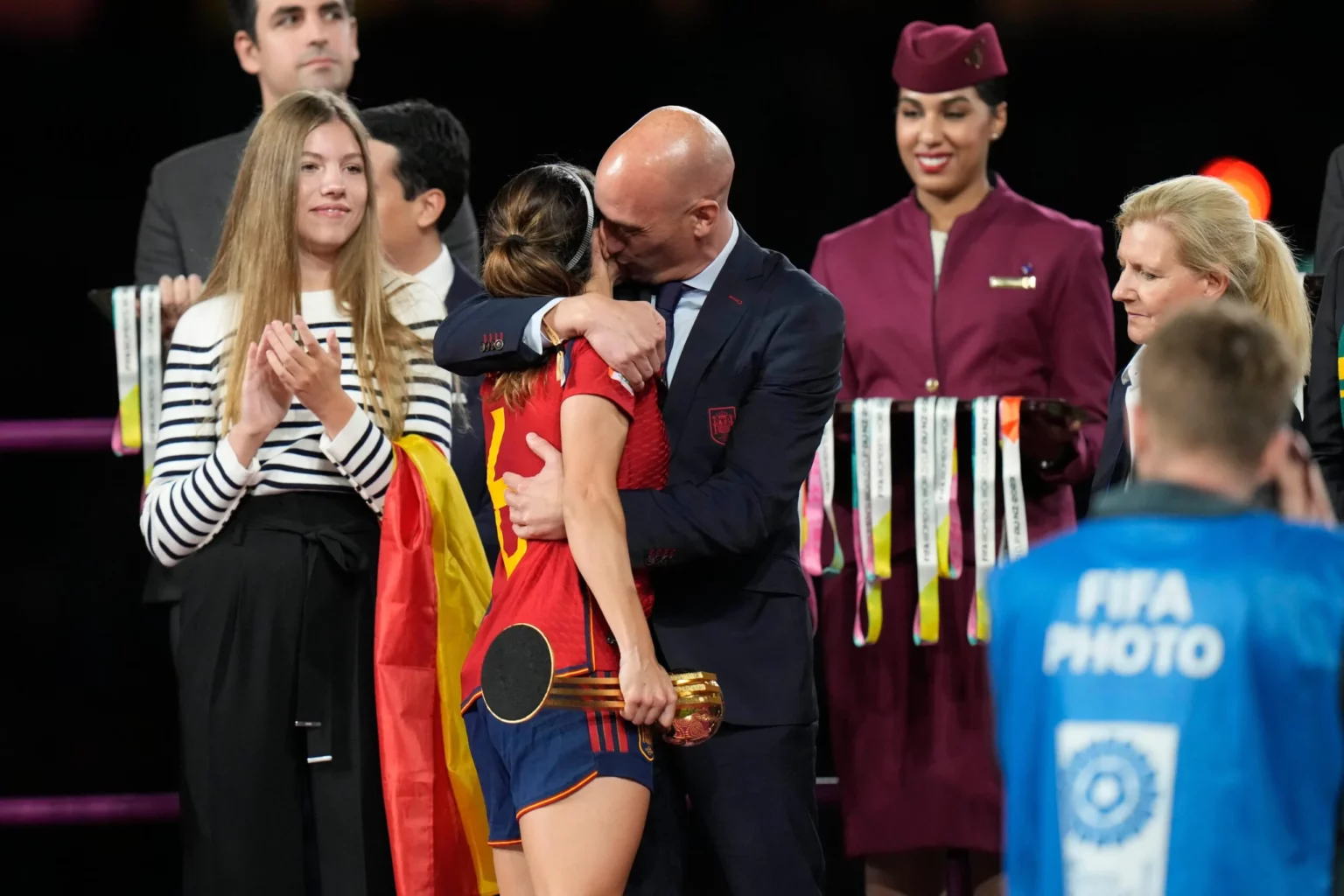The world of Spanish football is currently undergoing a tumultuous period as Luis Rubiales, the President of the Spanish Football Federation (RFEF), is expected to step down following a highly controversial incident involving an unsolicited kiss. The incident has triggered widespread condemnation and discussions about appropriate conduct within the sports world.
Multiple media reports indicate that Luis Rubiales, who is 46 years old, is set to announce his resignation during an extraordinary general assembly, which is scheduled for today [Friday]. This impending leadership change comes as the aftermath of an incident that has sent shockwaves throughout the football community.
The controversy centers around a kiss that Rubiales planted on the lips of Spanish player Jennifer Hermoso. This kiss occurred after Spain’s victory in the Women’s World Cup final against England. The final match, held in Sydney, ended with Spain securing a 1-0 victory. However, Rubiales’ celebratory gesture, in the form of an unsolicited kiss, has led to significant backlash and ignited discussions about the boundaries of appropriate behavior.
The criticism against Rubiales has grown so intense that FIFA, the international governing body of football, has initiated disciplinary proceedings against him. The organization has cited potential violations of its code of conduct, highlighting the seriousness of the situation. Jennifer Hermoso, in conjunction with the players’ union Futpro, underscored the necessity of accountability and the need to take action against such behavior. She emphasized that acts like the one witnessed should never go unpunished.
Prominent figures both within and outside the realm of football have called for Rubiales’ resignation. Among them is Spain’s Prime Minister Pedro Sanchez, who joined voices demanding accountability for the incident. Figures within the football community and beyond have echoed the sentiment, raising questions about the broader implications of such actions in a sports context.
The incident has also resonated within the realm of gender dynamics and equality. Spain’s Minister for Equality, Irene Montero, noted that this incident reflects the evolving landscape of feminism, indicating that it has the power to effect change across various domains.
Rubiales initially downplayed the criticism, considering it an overreaction. However, he later issued an apology that failed to mitigate the growing discontent and outrage. The incident has attracted the attention of human rights organizations, including Amnesty International, which has characterized the behavior as a form of sexual violence that cannot be justified.
As Spanish football braces for a leadership transition, speculation about Rubiales’ successor has emerged. Insiders point to Pedro Rocha, head of the Extremadura football federation, and Pablo Lozano, head of the Andalusia federation, as potential frontrunners.
This incident and its aftermath pose significant questions for Spanish football’s future direction and the broader conversation surrounding professionalism, conduct, and gender dynamics in sports. The transition in leadership signifies a pivotal moment for the sport and the values it upholds.




